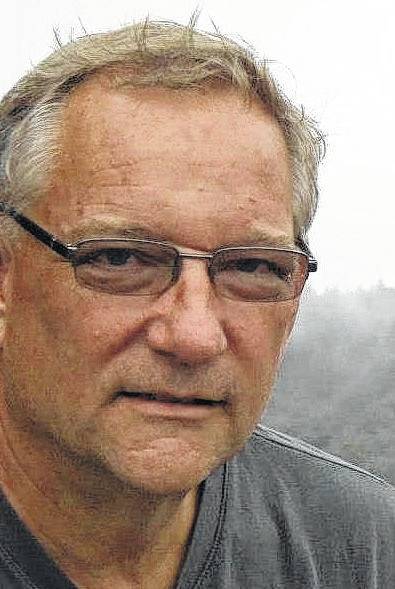
Howard Hughes passed away 44 years ago, on a plane over Texas enroute from Mexico to a hospital in Houston for medical care.
One of the world’s wealthiest entrepreneurs, Mr. Hughes realized a variety of successful business ventures, ranging from Hollywood filmmaking to airplane development, commercial aviation, and real estate development in Las Vegas. He amassed a wealth comparable to that of President Donald Trump’s today.
The question is asked, “So how much money did Howard Hughes really leave?” The answer: He left it all.
Once at the pinnacle of social notoriety and opulence, he became a laughingstock when launching the “Spruce Goose”, an exorbitantly expensive engineering fiasco, resulting in an enormous wooden plane that wouldn’t fly. As a pilot he set records for aviation speed and endurance, but also suffered two plane accidents, the last nearly fatal, suffering extensive internal injuries, burns, and a long, painful recovery.
May I suggest Howard Hughes also crashed and burned in life?
His last 10 years were spent in extreme isolation, separated entirely from human interaction except for aides hired for his care. A mentally obsessive germaphobe, Mr. Hughes existed in nearly total darkness, with black curtains on the windows of his top floor hotel suite. His mental and physical condition progressively deteriorated, becoming emaciated to skin and bone, and eventually he died unkempt, nearly beyond recognition.
It took seven years thereafter to settle his massive estate, because somehow Mr. Hughes had neglected to execute a last will and testament.
So, despite immense prosperity, Howard Hughes departed this world a pitiful, debilitated recluse, without relationships, purpose or legacy. How could that happen?
Have you ever considered the challenge of finding contentment if you’re financially independent? We are all driven by need, and motivation can be lacking where no needs exist. A sense of self-sufficiency can lead to boredom, which over time breeds discontentment, that often births sordid diversion to enliven oneself.
We’re cautioned in the Bible, “The love of money is the root of all evil”, and Jesus said, “It is easier for a camel to go through the eye of a needle than for someone who is rich to enter the kingdom of God.” Wealth arrives with problems, or so I’m told.
I have observed the disillusionment that sometimes accompanies luxurious lifestyle. I’m talking about people who no longer need to keep up with the Joneses, because the Joneses have long been left in their opulent dust. Like a peacock parading its tail feathers, they pompously laud their social status, seeking artificial affirmation within a small group of peers.
The disenchanted rich and famous are just like drug addicts actually, incessantly chasing another fix, albeit the pursuit of another golden opportunity perhaps, instead of a guileful opiate. But just as with drugs, their highs are frequently escorted by extreme discontentment, and often clinical depression.
Sometimes our “having it all” just isn’t enough. Something is missing.
There’s a magnificent Biblical illustration of this principle in Luke 12:13-21. Jesus fielded a question from someone in a crowd who asked Him to arbitrate a family dispute over an inheritance.
Jesus batted the request back, saying, in essence (paraphrased), “I’m not the executor, nor will I render a verdict.” Seeing clearly the core of the complaint was the man’s greediness, Jesus continued, saying, “Watch out. Be on your guard against all kinds of greed; life does not consist in an abundance of possessions.”
How interesting. Our lives do not consist in the abundance of our possessions.
Jesus then illustrated the point with a story known as the “Parable of the Rich Fool”.
In the parable, a wealthy farmer had more crops than room to store them. Unconcerned for those of lesser means who could benefit with his sharing the bountiful harvest, he chose instead to “tear down my barns and build bigger ones, and there I will store my surplus grain.”
This greedy farmer then surveyed his abundant inventory and thought, “you have plenty of grain laid up for many years. Take life easy; eat, drink, and be merry.” God rebuffed him, saying, “You fool! This very night your life will be demanded from you. Then who will get what you have prepared for yourself?”
As is said, you can’t take it with you, right?
There’s a powerful lesson to be learned here. You see, both our reward in Heaven and legacy on Earth are not based on possessions and wealth, but compassion and generosity.
What matters eternally is not the dimension of our barns, but the size of our heart. That is where contentment can be secured and maintained, both now and hereafter.
I offer this article in tribute to the late Steve Murphy. His son, Nick, is married to my niece, Megan.
Although I never had an opportunity to spend lots of time with Steve, I’m aware of his family priorities, agricultural skill, business acumen, and leadership in serving the Wilmington City Schools.
Thank you, Steve. I appreciate that the heart you had for our students and community far exceed the size of your barns. You will be sorely missed.
Dave Hinman is Pastoral Elder at Dove Church in Wilmington. Reach him at [email protected].


